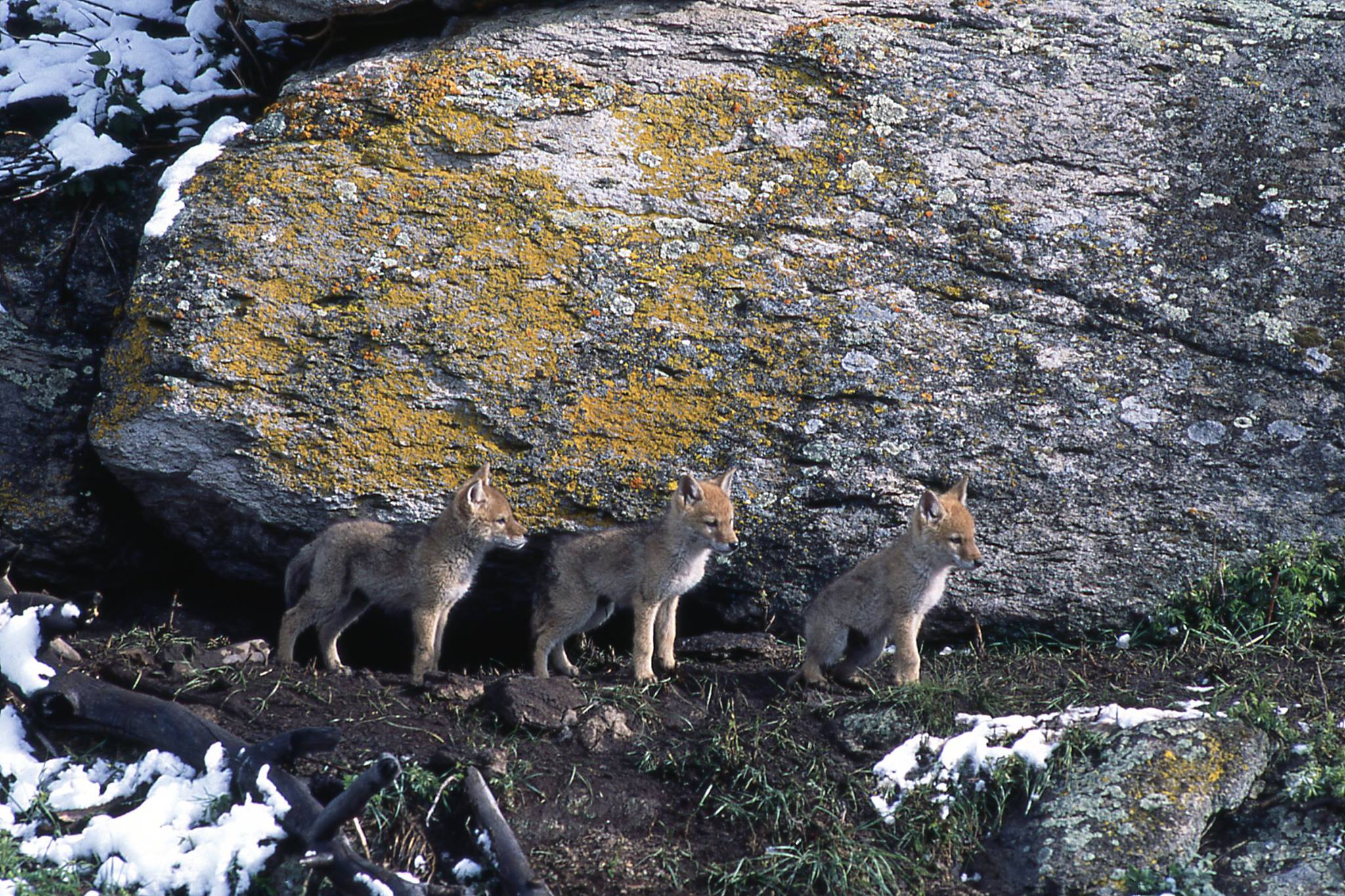“Awarding prizes for wildlife killing contests is both
unethical and inconsistent with our current understanding
of natural systems. Such contests are an anachronism and
have no place in modern wildlife management.”
— Michael Sutton, former president, California Fish and
Game Commission
Congressman Cohen made the following statement:
“America’s wildlife all play a special role in the natural ecosystem and killing them for what some deem ‘sport’ is both cruel and unnecessary. These contests serve no legitimate wildlife-management purpose and ending them is the right thing to do.”
Sponsoring organizations’ endorsements:
“This is a huge victory for coyotes, bobcats, foxes, mountain lions and all of America’s wild carnivores that have been relentlessly persecuted for decades,” said Stephanie Kurose, a senior policy specialist at the Center for Biological Diversity. “It’s appalling that these thrill-kill, mass slaughter contests were ever allowed on our public lands. We applaud the leadership of Representative Cohen and other cosponsors for introducing this important legislation, which will protect hundreds of millions of acres of public lands and spare countless wildlife from these ruthless kill fests.”
“A closer look makes it pretty clear that these bloodbaths constitute neither wildlife management nor sport,” said Tracie Letterman, Vice President, Federal Affairs, of the Humane Society Legislative Fund. “Killing contests aren’t merely retrograde cruelty, either. They destroy native carnivores like coyotes, who play a vital role in ensuring the health of forest and pastoral ecosystems. Now, thanks to Representative Steve Cohen’s leadership, we have a chance to do something about it.”
“We commend Representative Cohen and cosponsors for their leadership on this critical issue,” said Camilla Fox, founder and Executive Director of Project Coyote. “Most people are shocked to learn that wildlife killing contests are even legal on our public lands. Killing animals for prizes and entertainment is ethically indefensible, ecologically reckless and anathema to sound wildlife conservation and management.”
Co-sponsors are: Earl Blumenauer (OR-03), Gerald Connolly (VA-11), Jim Cooper (TN-05), Peter DeFazio (OR-04), Adriano Espaillat (NY-13), Ruben Gallego (AZ-07), Raúl Grijalva (AZ-03), Sara Jacobs (CA-53), Andy Levin (MI-09), Grace Meng (NY-06), Jerry Nadler (NY-10), Eleanor Holmes Norton (DC), Mark Takano (CA-41), Dina Titus (NV-01) and Cori Bush (MO-01.
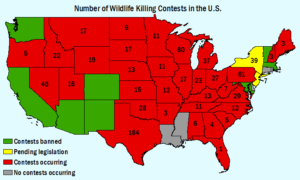
Endorsing Organizations
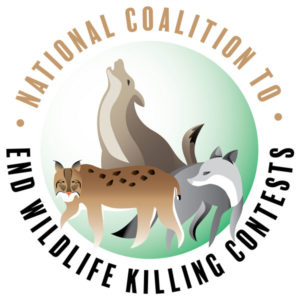
Center for Biological Diversity, Animal Welfare Institute, Humane Society of the US, Project Coyote, Animal Legal Defense Fund, Animal Protection New Mexico, Animal Protection Voters, Born Free USA, Bozeman Broadband, Buffalo Field Campaign, Center for a Humane Economy, Christian Council of Delmarva, Earth Path Sanctuary, Endangered Habitats League, Endangered Species Coalition, Footloose Montana, Gallatin Yellowstone Wilderness Alliance, Great Old Broads for Wilderness, Heartwood Howling For Wolves, Humane Action Pittsburgh, Jefferson County Humane Society, Klamath Forest Alliance, National Wolfwatcher Coalition, Nevada Wildlife Alliance, Oceanic Preservation Society, Ohio Animal Advocates, Pennywise LLC, Plan B to Save Wolves, Resource Renewal Institute, TrailSafe Nevada, Trap Free Montana, Trap Free Montana Public Lands, Turtle Island Restoration Network, University of Wisconsin – Madison, Washington College of Law Animal Law Society, WildEarth Guardians, Wildlife Rehabilitation and Rescue, Wyoming Untrapped, and Wyoming Wildlife Advocates.
Misunderstood species, deemed by some to be “pests” or “varmints,”
are the animals most frequently killed during these events because
there are almost no laws protecting them. They often can be killed in
unlimited numbers, all year long, and using almost any method. It is
impossible to know how many animals are injured or die in these contests
every year. Organizers generally do not need to obtain a permit from
the state wildlife agency, and participants in general aren’t required to
report their kills. Some state agencies may have no idea these events
are even happening in their state.
MISSION
The National Coalition to End Wildlife Killing Contests is a growing alliance of national and state organizations working to permanently abolish contests that promote the killing of bobcats, coyotes, foxes, mountain lions, wolves, and other species for cash and prizes in wildlife killing contests, derbies, and tournaments in the United States.
WHY?
The Coalition’s goals are to:
- Expose the prevalence of wildlife killing contests—organized events where participants compete for cash and prizes for killing a wide variety of wild animal species—across the United States.
- Raise public awareness about how wildlife killing contests disrupt ecological function and health, degrade the value of individual animals, teach disrespect for wildlife, and inflict and promote cruelty to animals.
- Inspire and promote grassroots action to end wildlife killing contests through legislation, regulatory reform, and litigation.
- Support efforts by organizations and individuals to prohibit and end wildlife killing contests nationwide, at every jurisdictional level.
- Advocate for responsible, humane, and ecologically sound wildlife management practices, focused on coexistence and science-based non-lethal methods of conflict resolution.
- Promote dialogue with wildlife killing contest sponsors to encourage them to stop supporting these events, and to view wildlife as essential components of healthy ecosystems rather than as pests, vermin, or targets in competitive killing contests.
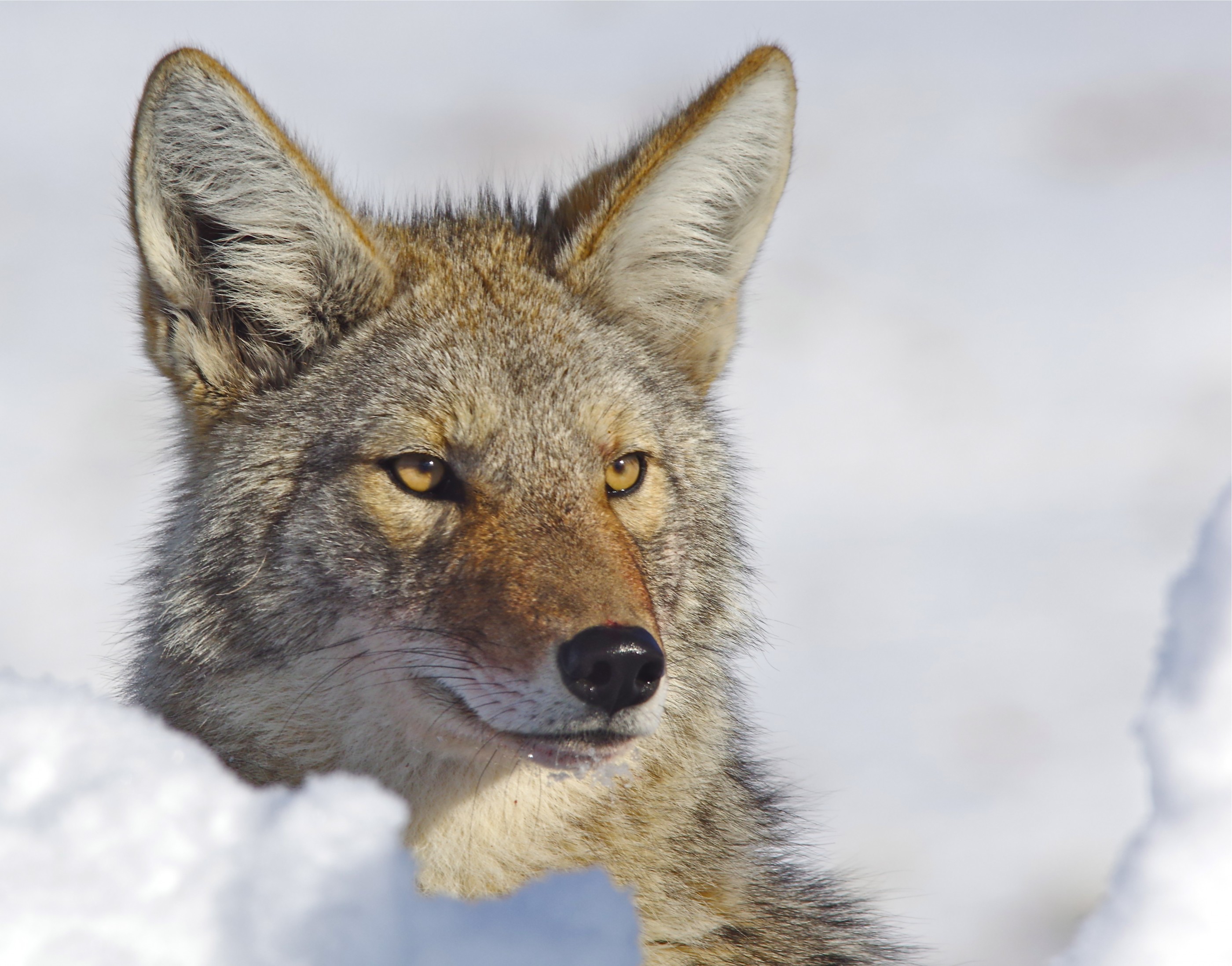
Cruel and unsporting
Wildlife killing contests remove any notion of fair chase, the fundamental hunting ethic that dictates that the hunter should not gain an unfair advantage over the hunted. Most contest rules do not even mention hunting ethics. Participants often use high-tech equipment and may spend months preparing. While some general hunting rules apply—for example, laws that make it unlawful to shoot from a roadway—the prospect of prize money creates a powerful incentive to ignore them. Some contests even allow the use of cruel traps, while others permit hound hunting or baiting.
THE GRUESOME REALITY
“The harsh reality of coyote killing makes you want to cry. The amount of evil that takes place every day is dehumanizing. It makes me ashamed to live in a state were it is legal to kill unlimited numbers of coyotes for fun and personal enjoyment. So many innocent coyotes die each day for no reason what so ever. Please help us continue to make a difference for these beautiful animals!” – Kylie Brown, 7th grader in Jackson, WY
THE COYOTE KILLING CONTESTS
“Coyote killing contests are not uncommon. Basically what they consist of is a large group of hunters spanning out for a certain period of time in a competition of who can kill the most coyotes or who can kill the largest. Many times there is prize money or a new rifle. Nobody thinks of how this affects the lives of coyotes. Just think about it. If someone kills a mother of a group of pups that are waiting for her to get home those pups will starve and be easy prey.”
Wyoming Coyote Pups
“With its uncanny night howls, unrivaled ingenuity, and amazing resilience, the coyote is the stuff of legends. In Indian folktales it often appears as a deceptive trickster or a sly genius. But legends don’t come close to capturing the incredible survival story of the coyote.
As soon as Americans….began ranching and herding in the West, they began working to destroy the coyote. Despite campaigns of annihilation employing poisons, gases, helicopters, and engineered epidemics, coyotes didn’t just survive, they thrived, expanding across the continent from Anchorage, Alaska, to New York’s Central Park. In the war between humans and coyotes, coyotes have won hands down.”
– Dan Flores
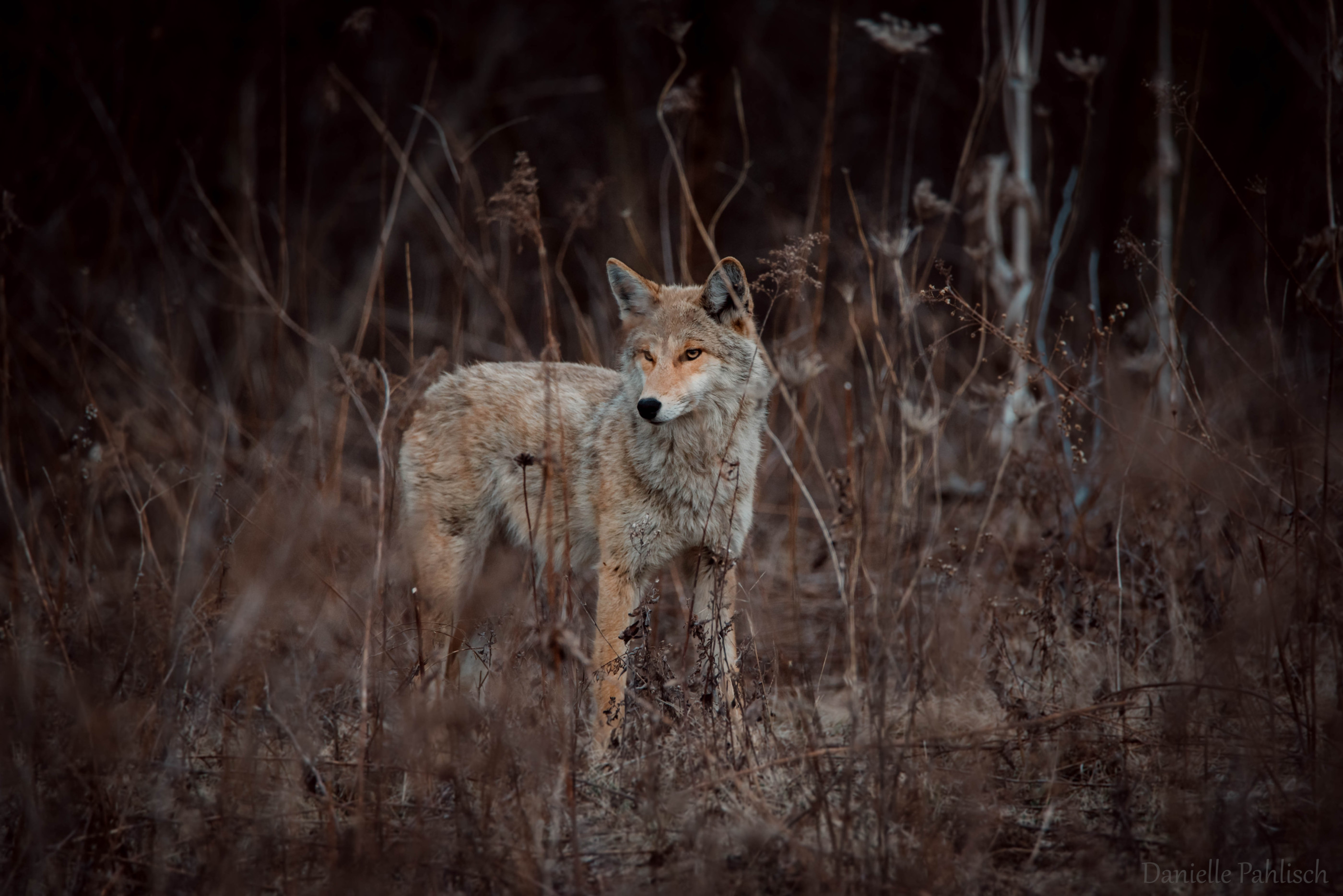
"Song Dogs" - Persecuted Throughout Wyoming
Experts agree that wildlife killing contests are cruel, unsporting and counterproductive to sound wildlife management. Below are a few referenced comments from leading experts about wildlife killing contests
“Awarding prizes for wildlife killing contests is both unethical and inconsistent with our current understanding of natural systems. Such contests are an anachronism and have no place in modern wildlife management.” Michael Sutton, former president, California Fish and Game Commission
“The wildlife management profession does not generally recognize the use of contests as a tool with substantial wildlife management effect.” State of Nevada Board of Wildlife Commissioners, August 2016
“Killing contests are not a proper way of introducing youth to the outdoors. I know, for I am an Eagle Scout. There was no killing involved in developing in me my love of nature.” Richard Rogers, former commissioner, California Fish and Game Commission
“A society that condones unlimited killing of any species for fun and prizes is morally bankrupt.” David R. Parsons, MS in Wildlife Ecology from Oregon State University, retired from U.S. Fish and Wildlife Service
“After decades of using predator control (such as paying bounties) with no effect, and the emergence of wildlife management as a science, the agency finally accepted the reality that predator control does not work. Pennsylvania Game Commission
“Shooting contests conducted in the name of killing animals for fun, money and prizes is just not consistent with the values of most people in the modern world.” Larry Shoen, farmer, a commissioner on the Board of County Commissioners, Blaine County, Idaho
“We don’t like anything that smacks of commercialization with money or prizes. Anything that doesn’t honor the animals grates on us and seems inherently wrong. These contests create very poor PR for hunters.” Eric Nuse, former executive director of the International Hunter Education Association
“For me, hunting contests don’t sit well. As a sportsman, I’d never participate in one personally. Hunting is an important reverent tradition in Colorado and a powerful management tool but I also think wildlife killing contests give sportsmen and sportswomen a bad name and damage our reputation.” Dan Gibbs, sportsman and executive director of the Colorado Department of Natural Resources.
“I am a hunter, I’ll clarify that, and I’ve never perceived hunting as a contest. I think these are not hunting contests, they’re killing contests.” He went on to state that, “I’m concerned about the demise of the hunting tradition, I’m concerned about the demise of the number of youth going into hunting and fishing. . . . What is going to help that number go down even faster and further is the image of a pile of dead critters out there. . . . This is a case of, we are actually shooting ourselves in the foot to allow that sort of thing.” Commissioner Brad Smith, Washington State Fish and Wildlife Commission
“As ranchers who know that livestock and wildlife can coexist, we feel it’s important to do what we can to help end this unnecessary war on wildlife. … It angers us when these contests are promoted as a way to help ranchers protect their livestock. The reality is, there is no noble purpose behind a killing contest.” Keli Hendricks, rancher, member of Project Coyote Advisory Board
“Hunting is not a contest and it should never be a competitive activity about who can kill the most or the biggest animals.” Ted Chu, hunter and former wildlife manager with Idaho Fish and Game
“The non-specific, indiscriminate killing methods used in this commercial and unrestricted coyote killing contest are not about hunting or sound land management. These contests are about personal profit, animal cruelty. … It is time to outlaw this highly destructive activity.” Ray Powell, former New Mexico Commissioner of State Lands. (HSUS)
“Proponents of the killing contests euphemistically refer to the events as ‘calling contests,’ emphasizing the skill involved in luring the prey rather than the kill.” Molde says the refusal of “killing contest participants to come to the events with their cameras and leave their guns at home,” awarding prizes to the person able to call, rather than kill the most coyotes, belies their true intention. “That they won’t accept that as ‘middle ground’ tells us that it’s the killing, not the calling, that is at the heart of these events,” he said. Don Molde, Nevada Wildlife Alliance
“Fish and Game does not support contests or bounties on predators, that portray hunting in an unethical light, devalue the predator and may be offensive to the public.” Idaho Fish and Game
The Wildlife Society:
— “Recognize that there is little evidence to support the use of killing contests for controlling predator populations. Recognize that while species killed in contests can be legally killed in most states, making a contest of it may undermine the public’s view of ethical hunting.”
— “In some cases, particularly for predators, justification for the killing contests is often based on flawed use of science. For example, coyote killing contests are often justified on the basis that coyotes kill deer or other game; however, that fails to recognize that predation is a proximal cause of mortality, but not necessarily the ultimate cause that limits a species’ population.”
— “Killing contests differ from typical regulated hunting by the very nature of the organized public competition and prizes being given specifically for killing the largest, smallest, or most animals. “Big Buck” pools or organized record books differ from killing contests because the animals recognized in these competitions are harvested consistent with ordinary and generally accepted hunting practices and then introduced to the competition.”
“Total eradication of coyotes is not possible. Trapping and removing coyotes will only result in new coyotes moving in to occupy empty territories. Efforts to eradicate coyotes can actually increase their numbers: females may breed at younger ages and give birth to larger litters. The survival rate of pups may increase due to less competition for food.” Kentucky Department of Fish & Wildlife Resources
“When targeted at the coyote, predator control programs have actually been counterproductive because coyotes have the ability to rapidly recolonize an area following elimination of a resident population. Studies have shown that increased control of coyote populations tends to increase average litter size of surviving coyotes resulting in a relatively stable population.” The Wyoming Game and Fish Department
“In meeting their own food demands, predators help reduce prey numbers where an overabundance of prey animals exists. Predators also remove animals with poor survival characteristics: the weak, sick, injured, or unwary.” Dave Rippe of Wyoming Game and Fish Department
Photography has the power to shift our understanding of our wild Wyoming to build a healthy and thriving ecosystem that benefits the lives of everyone. Thank you to the following photographers for graciously sharing high-quality images of the coyote.
Cover: Wyoming Coyote in the Wind
© Ashleigh Scully
@ashleighscullyphotography
Wyoming Coyote Pups
© John Fandek
Coyote in the Forest
© Danielle Pahlisch



